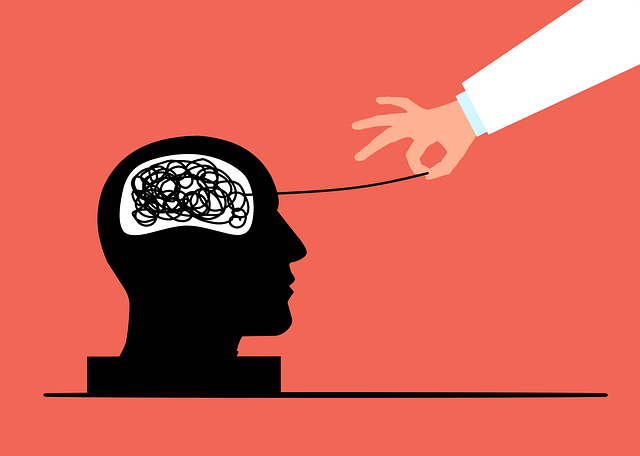Depression prevention involves recognizing signs and implementing holistic strategies. Arvada EMDR Certified Therapy offers a specialized approach by addressing emotional trauma through eye movement desensitization, improving emotional regulation and reducing recurrence risk. Lifestyle changes like exercise, balanced diets, sleep, and mindfulness are key. Building resilience through self-care, support systems, and seeking professional help empowers individuals to combat depression effectively. Seeking guidance from Arvada EMDR Certified Therapy or online resources is a proactive step towards improved mental health.
Depression is a prevalent yet complex condition, but with the right strategies, prevention is achievable. This article explores a multi-faceted approach to combat depression, from understanding its signs and symptoms to powerful therapeutic techniques like Arvada EMDR Certified Therapy. We delve into lifestyle adjustments, building resilience, and the importance of support systems. Additionally, we guide you through seeking professional help, emphasizing when and how to access resources for a healthier mindset.
- Understanding Depression: Recognizing Signs and Symptoms
- The Role of Arvada EMDR Certified Therapy in Prevention
- Lifestyle Changes for a Healthier Mindset
- Building Resilience: Coping Strategies and Support Systems
- Seeking Professional Help: When and How to Access Resources
Understanding Depression: Recognizing Signs and Symptoms

Depression is a common yet complex mental health condition that can significantly impact an individual’s daily life and overall well-being. Recognizing the signs and symptoms is a crucial first step in prevention. Many individuals struggle with depression may not realize they are experiencing symptoms, which can include persistent feelings of sadness, loss of interest or pleasure, changes in appetite, sleep disturbances, fatigue, difficulty concentrating, and thoughts of worthlessness or suicide. These indicators can be subtle and vary from person to person, making it essential for individuals to stay vigilant and seek support if needed.
In Arvada, EMDR Certified Therapy has emerged as a powerful tool in addressing depression. This therapeutic approach helps individuals process traumatic memories and negative beliefs, fostering emotional regulation and promoting emotional well-being. By combining specialized techniques with effective self-care practices, individuals can proactively manage their mental health. Implementing Emotionally Regulation Techniques, engaging in regular Self-Care Practices, and adopting Promotion Techniques for Emotional Well-being can all contribute to preventing the onset or exacerbation of depressive episodes.
The Role of Arvada EMDR Certified Therapy in Prevention

Arvada EMDR Certified Therapy plays a significant role in depression prevention by addressing underlying emotional trauma that can contribute to mental health issues. This therapeutic approach, backed by extensive research, uses eye movement desensitization and reprocessing (EMDR) techniques to help individuals process and resolve distressing memories or beliefs, thereby reducing the risk of depression onset or recurrence.
Integrating compassion cultivation practices within Arvada EMDR Certified Therapy further enhances its preventive capabilities. By fostering self-esteem improvement and cultivating a sense of inner kindness, this approach equips individuals with resilience against adverse life events. Moreover, advocacy for mental health policy analysis and advocacy ensures that accessible resources and support systems are in place, contributing to a holistic depression prevention strategy.
Lifestyle Changes for a Healthier Mindset

Adopting a healthier lifestyle plays a pivotal role in depression prevention and promoting mental wellness. Regular exercise, for instance, releases endorphins, often referred to as ‘feel-good’ hormones, which can significantly boost mood and reduce symptoms of both anxiety and depression. Furthermore, Arvada EMDR Certified Therapy has proven effective in helping individuals process traumatic memories and overcome emotional blocks, fostering a sense of stability and resilience. A balanced diet, rich in vitamins and minerals, also contributes to mental health by ensuring the brain receives the necessary nutrients for optimal function.
In addition to physical and nutritional well-being, quality sleep is essential. Establishing a consistent sleep routine can enhance cognitive functions and emotional regulation, thereby preventing depressive episodes. Incorporating stress management techniques like meditation or mindfulness into daily routines can also serve as powerful tools in depression prevention. These practices promote mental clarity, reduce tension, and cultivate a sense of calm, all of which are vital for maintaining a healthy mindset.
Building Resilience: Coping Strategies and Support Systems

Building resilience is a cornerstone in preventing depression and promoting overall mental well-being. Coping strategies play a significant role in equipping individuals to navigate life’s challenges. One effective approach is integrating self-care practices into daily routines. This involves prioritizing sleep, engaging in regular physical activity, and maintaining a balanced diet. Additionally, practicing mindfulness techniques like meditation can foster emotional regulation and enhance coping abilities.
Support systems are equally vital for building resilience. Connecting with loved ones, joining support groups, or seeking Arvada EMDR Certified Therapy can provide valuable outlets for processing emotions and experiences. By fostering open communication and sharing feelings, individuals can reduce the burden of mental illness stigma reduction efforts while gaining insights into their emotional states. These collective strategies not only prevent burnout but also empower individuals to build a robust psychological shield against depression.
Seeking Professional Help: When and How to Access Resources

When facing persistent feelings of sadness, hopelessness, or loss of interest, it’s crucial to recognize when professional help is necessary. Seeking support from a qualified therapist is an essential step in preventing depression and managing mental health. In Arvada, EMDR Certified Therapy offers a specialized approach to treatment, focusing on helping individuals process traumatic memories and emotions effectively. This form of therapy has proven successful in reducing symptoms of post-traumatic stress disorder (PTSD) and can also play a significant role in combating depression.
Accessing these resources is simpler than you might think. Many insurance providers offer coverage for mental health services, making therapy more accessible. You can start by reaching out to your primary care physician who can provide a referral or guide you to local clinics specializing in mental health care. Additionally, online platforms and support groups are excellent initial steps to gain insights into available options. Remember, seeking help is a sign of strength, and with the right support, it’s possible to boost confidence, practice mindfulness meditation techniques, and actively contribute to Mental Illness Stigma Reduction Efforts.
Depression prevention is a multifaceted approach that combines understanding, therapy, lifestyle changes, and support. As discussed in this article, recognizing signs early on and seeking professional help like Arvada EMDR Certified Therapy can significantly mitigate risks. Incorporating healthy lifestyle changes, building resilience through coping strategies, and fostering strong support systems are also key elements in preventing depression. Remember that each individual’s journey is unique, so tailoring these strategies to personal needs is essential for a healthier mindset.












